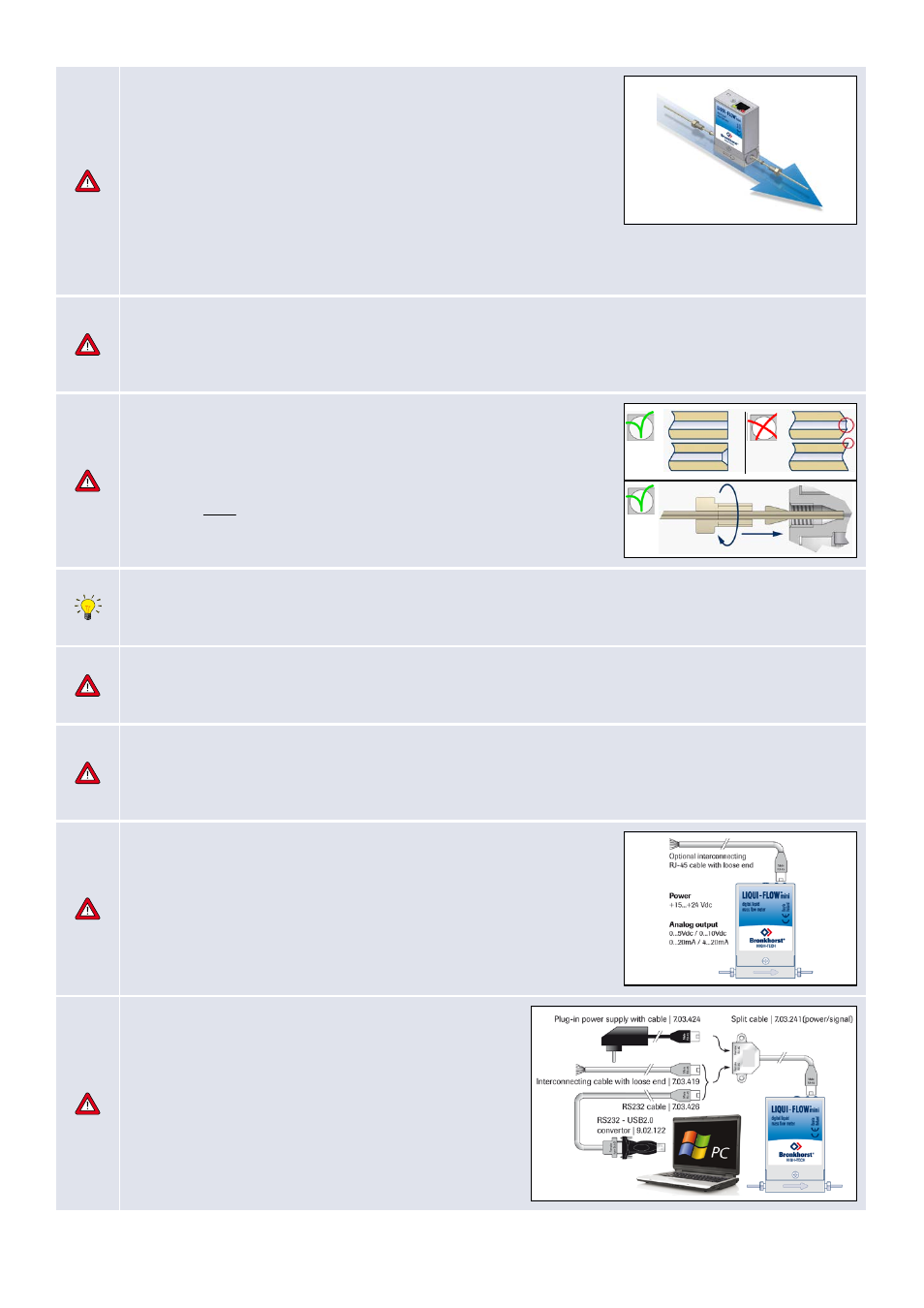Bronkhorst LIQUI-FLOW mini Quick Start User Manual
Page 3

© 2013 Bronkhorst High-Tech B.V.
3
4a. Mount / install instrument properly
For LIQUI-FLOW
TM
mini the upright position is preferred. When using a
LIQUI-FLOW
TM
mini instrument in up- or downward position make sure to
“zero” the instrument prior before use (see step 10). Avoid installation in
close proximity of mechanic vibration and/or heat sources. The housing of
the instrument is according to class IP40, which means that the instrument is
suitable for indoor (dry) applications, like laboratories or well protected
(OEM) housings.
Install the LIQUI-FLOW
TM
mini instrument in the line, in accordance with the direction of the FLOW arrow. The
arrow for flow direction is indicated on the body of the instrument. If applicable follow the guidelines of the
supplier of the fittings. Special types of fittings are available on request.
4b. Compression type fittings
For leak tight installation of compression type fittings make sure that the tube is inserted up to the shoulder in the
fitting body and that no dirt or dust is present on tube, ferrules or fittings. Tighten the nut finger tight; while
holding the instrument, then tighten the nut one turn.
4c. 10-32 UNF fittings
Tighten the 10-32 UNF fittings according to the instructions of the supplier of
the fittings.
Only use 1/16” tubing with a straight and clean cut without burrs to ensure
leak tightness. Deburr the tubing prior to installation. A new ferrule
connection must be made for each new adapter to ensure leak-tightness and
minimum dead volume, due to tolerances in the adapter dimensions.
Location
Install the instrument on a stable position and assure that mechanical vibration, heat source influence and draft
are reduced to a minimum.
5. Leak check
Check the system for leaks before applying (fluid) pressure. Especially if toxic, explosive or other dangerous fluids
are used!
6. Electrical connection
Electrical connections must be made with a standard cable or according to the LIQUI-FLOW
TM
mini hook-up
diagram. These diagrams can be found on the “Documentation and software tools” CD-ROM and at the download
section of www.bronkhorst.com. LIQUI-FLOW
TM
mini instruments are powered with +15…+24 Vdc.
7a. Analog operation:
For analog operation refer to the “Hook-up diagram LIQUI-FLOW
TM
mini” or
use an RJ-45 loose-end cable (7.03.419) to connect the required signals.
7b. Digital RS232 operation
Digital operation over RS232 can be established when using
the following setup. Using RS232 or USB-RS232 convertor with
a PC will allow you to use (free) Bronkhorst® software for
Windows, such as FlowDDE and FlowPlot.
